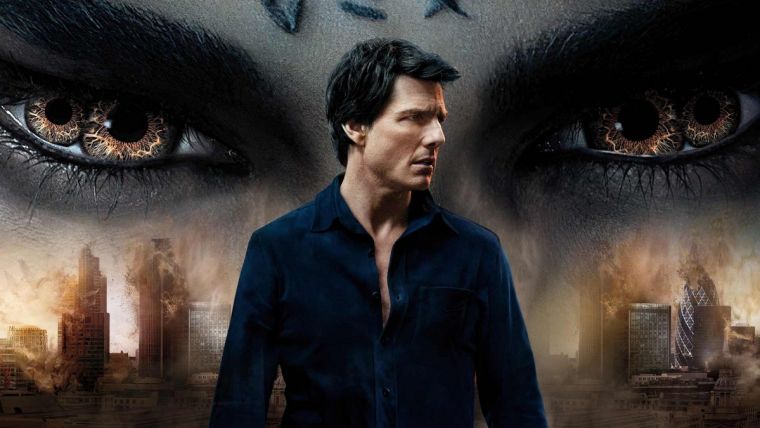The Mummy review: evil has never been so bad
Just how many movie franchises can one man hold together? He's already the star of the Mission Impossible and Jack Reacher series'; now Tom Cruise is attempting to become the linchpin of yet another set of big budget action movies, Universal's so-called 'Dark Universe'. While the Mission Impossible films continue to entertain, the last Reacher film was pretty much self-reviewed by it's own title: Never Go Back. That said, I'd rather revisit it several times than have to sit through chapter one of the Dark Universe again. The Mummy is bad. Really bad.

Frustrated by the box office dominance of Marvel Studios' massive superhero franchise and a growing sense that rivals Warner Brothers might finally be waking up the DC comic universe, Universal has launched the Dark Universe as their own interlocking series of big-budget popcorn flicks. Yet while the first two have chosen to build a web of stories around the concept of heroism, Universal has gone in the opposite direction, focusing on monsters first, rather than those who fight them. So unlike the Marvel and DC movies, The Mummy isn't titled after the hero but the villain. Universal is attempting to move into the crowded hero marketplace by backing evil, and from this evidence it really doesn't offer a compelling experience for the viewer.
That somewhat flawed concept is the fault line at the heart of the movie, and worryingly for Universal, the whole franchise. Cruise is the selfish treasure hunter who stumbles across an ancient evil; Russell Crowe – as the series-linking Dr Jekyll and Mr Hyde – is part of a secret taskforce set up to combat monsters like the one Cruise has woken. Like all the other characters in the movie, they're one-dimensional, unheroic soldiers trying to stop the titular Mummy (Sofia Boutella), but not for any particular reason apart from trying to stay alive in each scene. There's no vision of hope offered; no window into a world worth saving. There's just a big baddie who wants to kill people, and some 'goodies' who are trying to stop her.
Given that the film cost $125 million to produce, stars modern cinematic royalty and was plotted by some of Hollywood's most experienced screenwriters, it's hard to understand how The Mummy can be quite as magnificently underwhelming as it is. The effects are certainly well done, the action sequences (including some shot at Waverley Abbey, home of Christian charity CWR) are well-staged and the occasional moments of horror are suitably jumpy. It's just that throughout the whole story, you don't care about what happens to the characters AT ALL. When apparently-central characters die, we shrug; when Cruise and co-star Annabelle Wallis discuss the impending danger facing the world, we yawn and check our watches. The Mummy perfectly illustrates the alchemy of modern film-making: you can have all the right pieces in there, but if a film has no heart or soul, it will not connect with its audience.
There are already nine more Dark Universe films in production, taking in such seminal monsters as Frankenstein, Dracula and even the Phantom of the Opera. All of these have previously proved to be intriguing subject matter for both literature and films. Yet if Universal doesn't quickly resolve the problems exposed in The Mummy, it will end up with a film series that's as emotionally engaging as the Transformers franchise, and unlikely to last anywhere near as long. Their problem is right there in the title: it's chosen to use evil as the common link that will unite its films and bring in the audiences, when those viewers visit the cinema to be excited, uplifted and ultimately inspired by good. It turns out the darkness isn't half as compelling as the light.
Martin Saunders is a Contributing Editor for Christian Today and the Deputy CEO of Youthscape. Follow him on Twitter @martinsaunders.











